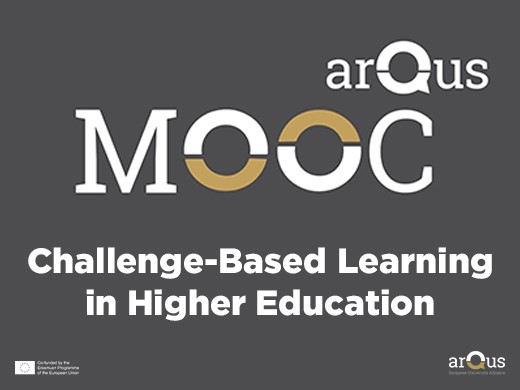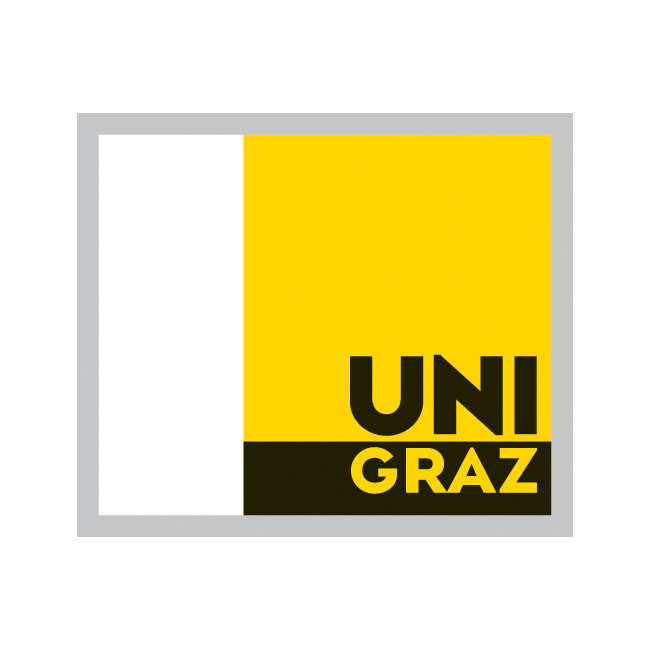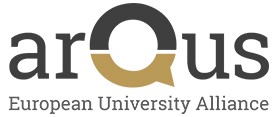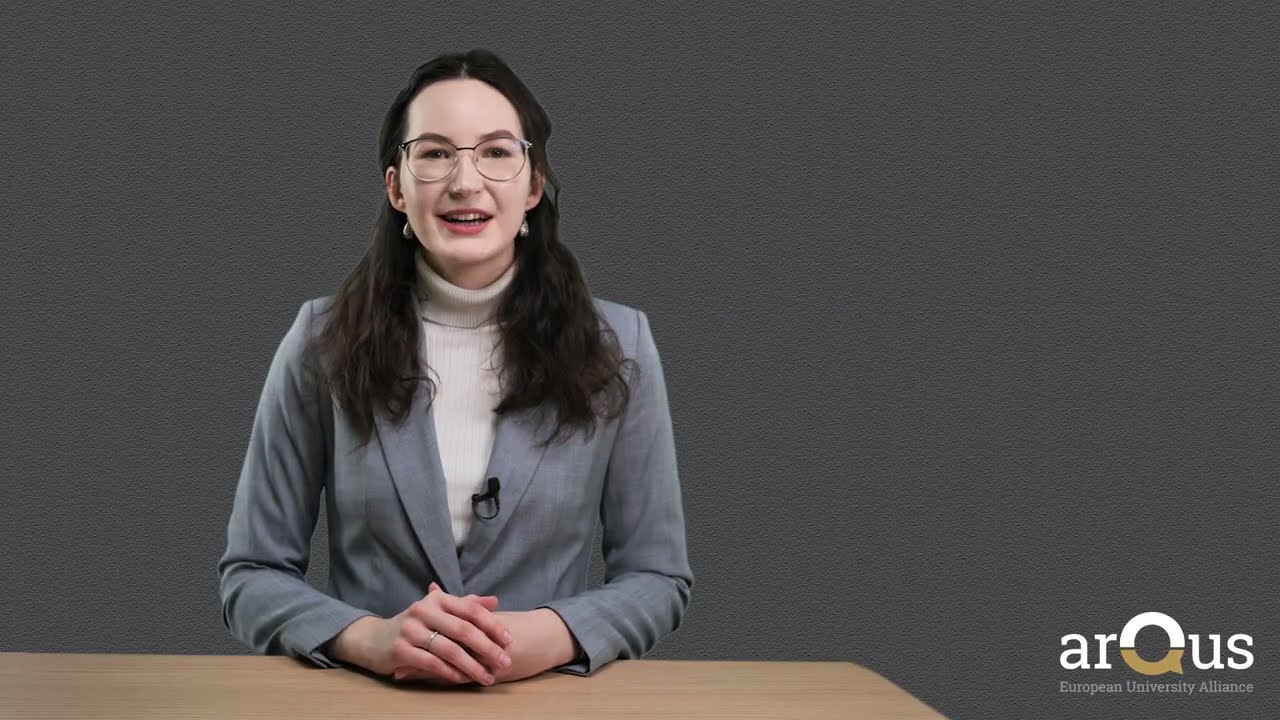


Challenge Based Learning in Higher Education
University of Graz
Silvia Didier, Noemie Dominguez, Caterina Hauser, Smita Mohanty, Paolo de Stefani, Jurgita Vizgirdaite
Sobre
Trailer para Challenge Based Learning in Higher Education
Informações gerais do curso
Challenge-based learning is an innovative active approach to teaching and learning which is comparatively new to higher education.
This MOOC helps you to develop competences needed to introduce
challenge-based learning into your own teaching practice.
Conteúdo
Conteúdo do curso
In this MOOC, you will:
- be introduced to CBL, its definition, origins and precursors
- learn about the benefits and drawbacks of CBL
- find out how the learning process in CBL can be structured and supported
- get an overview of the main participants and their core roles, responsibilities and competences
- identify means for meaningfully assessing CBL
Theory is combined with practical examples and testimonials of teachers and students involved in CBL projects. Resources and reflective tasks support your transition in integrating CBL into your own practice.
The challenge-based learning in higher education MOOC is aimed at
teachers in higher education and anyone interested in CBL and teaching and
learning in higher education.
Objetivos do curso
The aim of this MOOC is to provide an overview of the theoretical considerations and practical aspects of challenge-based learning. This includes basic information about this approach to teaching and learning and practice-oriented examples, tools and resources to help you integrate CBL into your own teaching or supra-university projects within Arqus and beyond.
Upon successful completion of this MOOC, you will:
- have acquired knowledge and understanding of CBL
- be able to explain the essential characteristics of CBL and parameters for putting it into practice: what is CBL, who are its main participants, what are their roles, responsibilities, competences, how do you prepare and implement CBL in your own course, and how assessment is used in CBL
More detailed learning objectives for each unit can be found in the
respective descriptions.
Conhecimento prévio
none
Procedimento do curso
The course contains four units covering the following topics:
Unit 1: Introduction to CBL
Unit 2: CBL makers
Unit 3: CBL in action
Unit 4: Assessment in CBL
Each unit
contains videos explaining the essential aspects of the topic. Some videos are
accompanied by relevant practical examples and testimonials. Each unit includes
self-study resources and/or tasks to support learning and reflecting about the
content. It comes with a list of
recommended literature and concludes with a multiple-choice quiz.
Certificado
For actively participating in the course you will receive an automatic certificate which includes your username, the course name as well as the completed lessons. We want to point out that this certificate merely confirms that the user answered at least 75% of the self-assessment questions correctly.
The course language is English. The European Commission's support for the production of this MOOC does not constitute an endorsement of the contents, which reflect the views only of the authors, and the Commission cannot be held responsible for any use which may be made of the information contained therein.
Nas redes sociais
Instrutor do curso

Silvia Didier, Noemie Dominguez, Caterina Hauser, Smita Mohanty, Paolo de Stefani, Jurgita Vizgirdaite
Silvia Didier
Silvia Didier is an associate professor at the iaelyon – School of Management at the University Lyon 3. In the past she held different roles and responsibilities at the iaelyon. She was the co-director of the Master in International Management and was head of the Master 2 program International Business Realities. In 2018 Silvia became the pedagogical head of the Master 2 International MBA that she is still co-directing today. Her fields of expertise are: Intercultural management and communications and she is particularly interested in the internationalization of university programs and new and innovative forms of pedagogy. Besides being an associate professor, Silvia also runs her own coaching, training & consulting agency, Projet France International.
Noémie Dominguez
Dr. Noémie Dominguez is Associate Professor in Management Sciences. Her research focuses mainly on internationalization strategies of SMEs, business networks, international and migrant entrepreneurship. She is the Master 1 International Business Realities Program Track Director, and co-director of the "International Management" Master program (accredited by EFMD Accredited Programs). She participates in activities organised by the Magellan Research Center as member of the Strategy research group and co-director of the "International Management" research team (in coll. with Dr. Ludivine Chalençon). She is co-leader of the European project H2020 MERGING - Integration for migrants (2021-2023, in coll. with Dr. Catherine Mercier-Suissa). She is the author of several books and articles published in French and international journals related to international management, such as International Business Review, Management International, Revue Internationale PME, M@n@gement, Journal of International Entrepreneurship, etc. She is a member of several scientific associations (EIBA, AIB, Atlas/AFMI) and scientific committees, such as Atlas/AFMI.
Caterina Hauser
Mag. Caterina Hauser, BA is a research assistant at the Center for digital teaching and learning of the University of Graz. She is a PhD candidate focusing on challenge-based learning in higher education. In her dissertation project, she is developing a technology-enhanced challenge-based learning design for higher education using the example of artificial intelligence as part of the project “Teaching Digital Thinking” funded by the Austrian Federal Ministry of Education, Science and Research. In addition, she shares her expertise in the context of local and international projects.
Smita Mohanty
An international entrepreneurship projects manager, Smita currently coordinates the "Entrepreneurial University and Regional Engagement" action line of the Arqus European University Alliance. She holds Masters degrees with specializations in project management, International relations and humanitarian affairs. Previously, she has worked in events management, international relations, as well as in a start-up accelerator developing an international program championing innovation and entrepreneurship.
Paolo De Stefani
Paolo De Stefani is senior lecturer in International Law at the University of Padova, Italy, Department of Political Sciences, Law and International Studies. He is currently member of the Human Rights Centre of the same University, deputy coordinator of the PhD in Human Rights, Society and Multilevel Governance, national director of the European Master’s Degree in human rights and democratisation, director of the Italian Yearbook of Human Rights, and author of several publications in international law, humanitarian and criminal law, human rights jurisprudence.
Jurgita Vizgirdaite
Dr. Jurgita Vizgirdaite is an interim Head of Study Division – Deputy Director and an Associate Professor at Vilnius University Business School, Lithuania. Her Ph. D. is in educational sciences. She is responsible for the management of studies at VU Business School, the development of the study portfolio, the quality of the study programs and studies, integration of the innovative learning and teaching methods into the curriculum, working with the study program directors and committees, working with students and their feedback. Her professional interests include the study quality in higher education and the empowerment of innovative learning and teaching environments.
Iniciar sessão e inscrever-se Atualmente: 466 Participantes
Gratuito para todos € 0.00
Parceiros
This MOOC has been developed by the Arqus
European University Alliance during the Erasmus + co-funded period 2019-2022. Partners: University of Bergen, University of Granada, University of Graz, Leipzig University, Université de Lyon, University of Padua, Vilnius University

University of Graz
Graz


